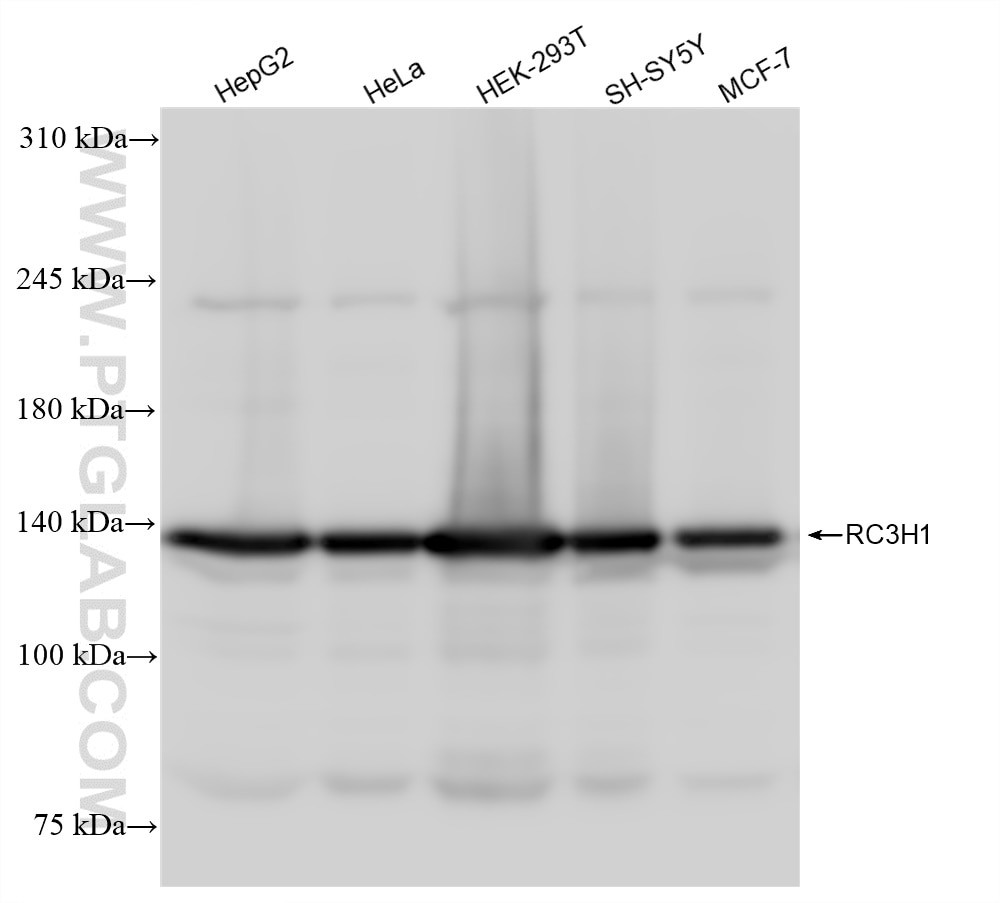Tested Applications
| Positive WB detected in | HepG2 cells, HeLa cells, HEK-293T cells, SH-SY5Y cells, MCF-7 cells |
Recommended dilution
| Application | Dilution |
|---|---|
| Western Blot (WB) | WB : 1:1000-1:6000 |
| It is recommended that this reagent should be titrated in each testing system to obtain optimal results. | |
| Sample-dependent, Check data in validation data gallery. | |
Product Information
84323-1-RR targets RC3H1 in WB, ELISA applications and shows reactivity with human samples.
| Tested Reactivity | human |
| Host / Isotype | Rabbit / IgG |
| Class | Recombinant |
| Type | Antibody |
| Immunogen | Peptide Predict reactive species |
| Full Name | ring finger and CCCH-type zinc finger domains 1 |
| Observed Molecular Weight | 130-140 kDa |
| GenBank Accession Number | NM_172071 |
| Gene Symbol | RC3H1 |
| Gene ID (NCBI) | 149041 |
| RRID | AB_3671865 |
| Conjugate | Unconjugated |
| Form | Liquid |
| Purification Method | Protein A purfication |
| UNIPROT ID | Q5TC82 |
| Storage Buffer | PBS with 0.02% sodium azide and 50% glycerol , pH 7.3 |
| Storage Conditions | Store at -20°C. Stable for one year after shipment. Aliquoting is unnecessary for -20oC storage. 20ul sizes contain 0.1% BSA. |
Background Information
Roquin-1 (Rc3h1) is an E3 ubiquitin ligase originally discovered in a mutational screen for genetic factors contributory to systemic lupus erythematosus-like symptoms in mice. A single base pair mutation in the Rc3h1 gene resulted in the manifestation of autoantibody production and sustained immunological inflammation characterized by excessive T follicular helper cell activation and formation of germinal centers. (PMID: 26673963)
Protocols
| Product Specific Protocols | |
|---|---|
| WB protocol for RC3H1 antibody 84323-1-RR | Download protocol |
| Standard Protocols | |
|---|---|
| Click here to view our Standard Protocols |



